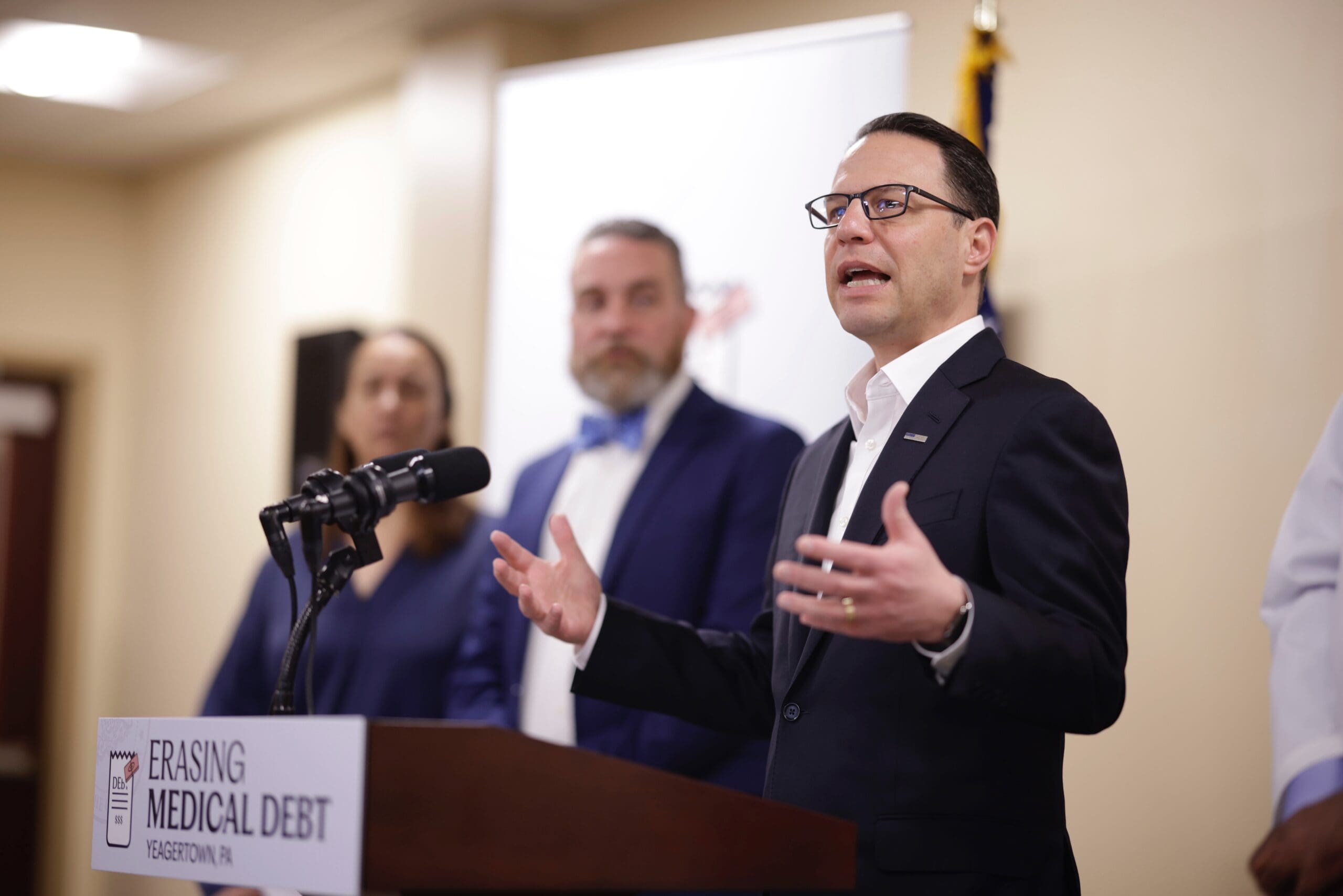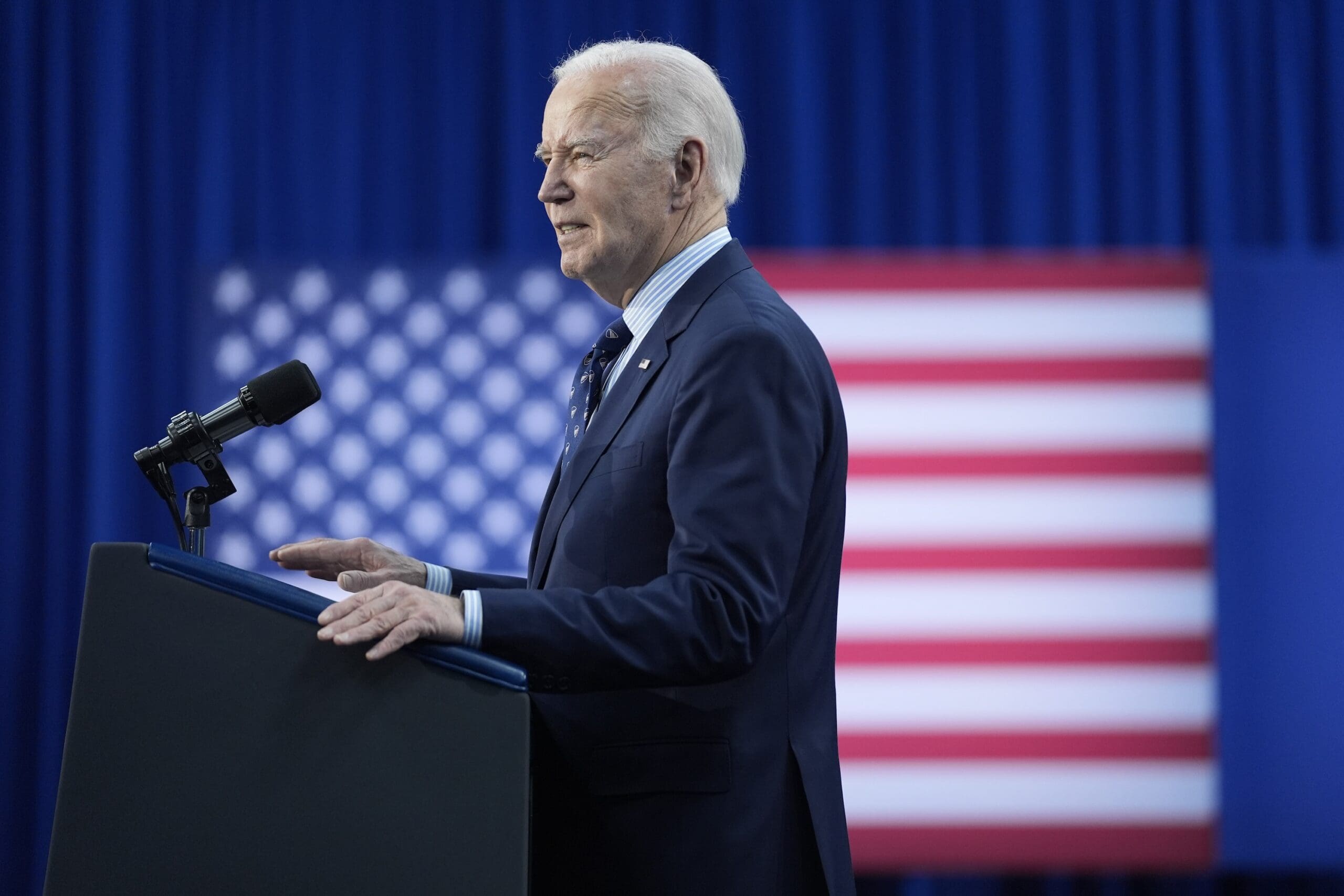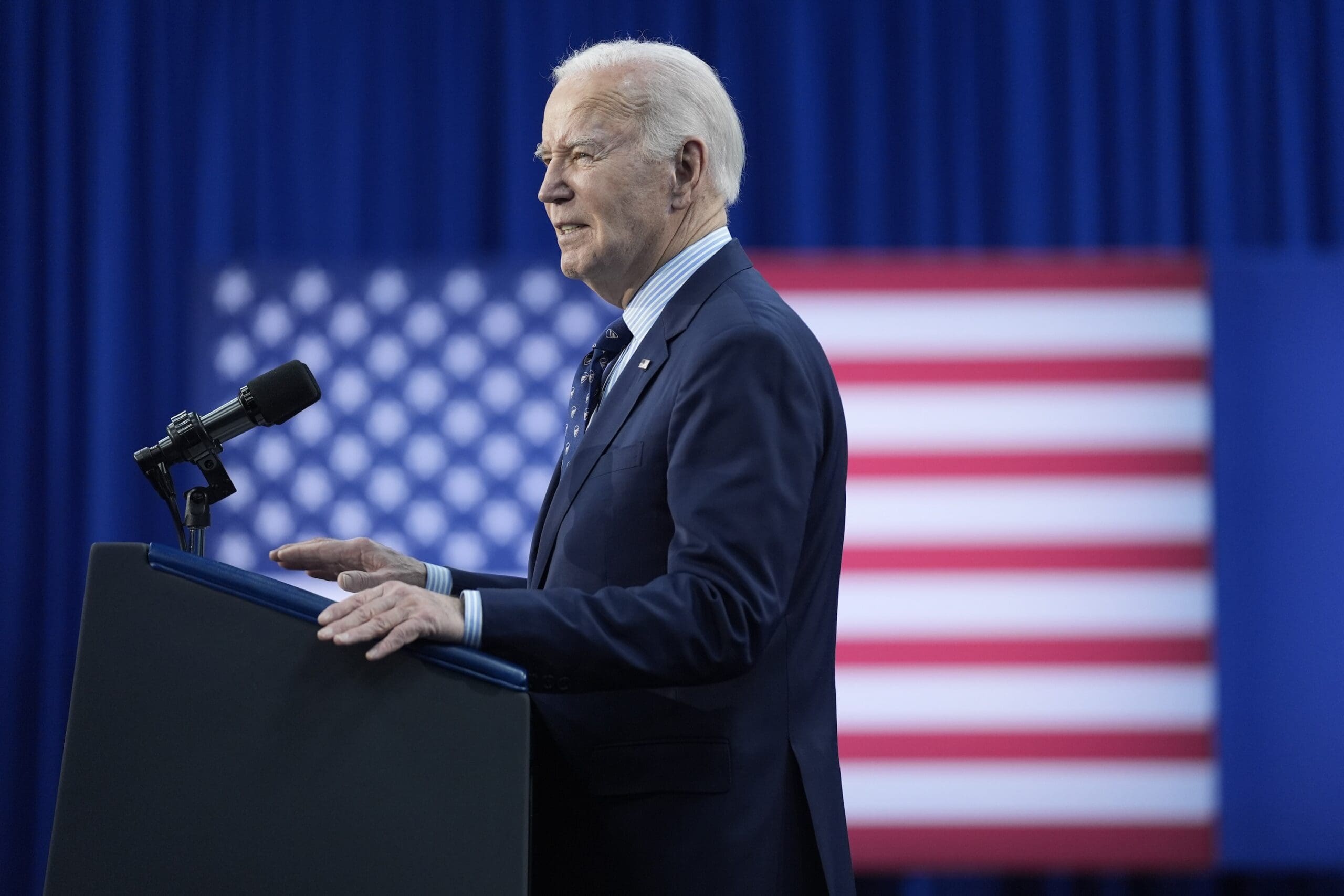Pennsylvania governor’s race could decide the future of abortion in the state

Casey Quinlan
‘This gubernatorial race in November in Pennsylvania is really critical for the state of abortion access here,’ one advocate said.
The future of abortion access in Pennsylvania is shakier in the wake of the news that the Supreme Court might strike down the landmark 1973 decision Roe v. Wade, which enshrined abortion as a constitutional right for all Americans.
On May 2, Politico reported on a Supreme Court draft majority opinion in the case Dobbs v. Jackson Women’s Health Organization, in which the court was asked to decide whether Mississippi’s 15-week abortion ban, which was enacted in 2018 and has few exceptions, is unconstitutional. Justice Samuel Alito wrote that Roe and a subsequent decision, Planned Parenthood v. Casey, a 1992 decision that upheld abortion rights, “must be overruled.” Chief Justice John Roberts said the leaked document was authentic, but added that it “does not represent a decision by the Court or the final position of any member on the issues in the case.” The Supreme Court is expected to release its decision in late June or July.
Sixteen states and the District of Columbia have codified Roe v. Wade and the legal right to abortion into state law. Meanwhile, 13 states have so-called “trigger laws” banning abortion on the books that would immediately go back into effect if the Supreme Court strikes down Roe.
Pennsylvania is a state that falls into neither of these categories.
Abortion is technically legal in Pennsylvania and will be even if Roe is overturned, experts say. But that doesn’t mean there aren’t any barriers to getting an abortion in the state or that Republican policymakers won’t impose greater restrictions or complete bans.
The state has a number of restrictions that make it more difficult for patients to receive abortions. Under state law, for example, minors must receive parental consent to get an abortion; patients must receive mandatory counseling before they receive an abortion; and health insurance plans offered by the state’s exchange under the Affordable Care Act cover abortion only in cases of rape or incest or when the pregnant person’s life is in danger. Abortions is banned at 24 weeks after the pregnant person’s last period unless their life or health is at risk.
The Pennsylvania Constitution has an equal rights amendment that groups advocating for abortion access have used to fight restrictions.
Amal Bass is the director of policy and advocacy at the Women’s Law Project, a nonprofit that fights for women’s and LGBTQ people’s rights in Pennsylvania. Bass told the American Independent Foundation, “Abortion is available and it is accessible for some people, but it’s not as accessible as it should be. … And even after the [release of the] draft opinion, abortion is still legal in Pennsylvania. After the final decision comes out in June or July, it’ll still be legal in Pennsylvania, at least until the end of this year. Next year, we don’t know, and that is really going to be up to the political will of the people and who they send to Harrisburg.”
Julia Henrikson had a medication abortion, which is carried out with the drugs Mifepristone and Misoprostol in the first 10 weeks of pregnancy, in Philadelphia in 2020. Henrickson told the American Independent Foundation of her decision, “I wanted to build a career and that was great, but part of that was also in some ways being able to set myself and my future family up for success. So many people are able to be incredible parents with far less, but for me, I was able to take the time and I had the option to say ‘Okay, I’m going to put a pause on this.'”
The hotly contested gubernatorial race could present the biggest threat to people receiving this vital medical care in the state, experts say. Pennsylvania’s Democratic governor, Tom Wolf, is serving his final term in office. The leading Republican candidates for governor have said they want to ban abortion to varying degrees.
In response to the leaked draft opinion, Wolf said he would continue to protect Pennsylvanians’ abortion rights as long as he is governor.
“Should this opinion become final, abortion access in Pennsylvania will remain legal and safe as long as I am governor. I will continue to veto any legislation that threatens access to abortion and women’s health care,” Wolf said on May 3.
Pennsylvania Democratic Attorney General Josh Shapiro is running for Wolf’s seat. Shapiro has been supportive of abortion rights during his campaign.
“The reason I talk about it as frequently as I do is because the stakes couldn’t be higher,” Shapiro told NBC News in March. “Who we elect as our next governor in Pennsylvania quite literally decides whether a woman’s right to choose continues to exist in our commonwealth.”
Pennsylvania Republican state Sen. Doug Mastriano provided his anti-abortion credentials in a debate for the GOP gubernatorial candidates in April. He mentioned that in 2019 he introduced a six-week abortion ban. According to the Philadelphia Inquirer, he has also said that he would not include exceptions for rape, incest, or risks to the life of the patient.
The Associated Press reported that both Mastriano and Lou Barletta, who represented the state’s 11th Congressional District for several years, answered in a questionnaire sent by the Pro-Life Coalition of Pennsylvania that they would fight for a ban on any abortion in a questionnaire for the Pro-Life Coalition of Pennsylvania. Barletta has said he supports exceptions, however, the Inquirer reported.
Julie Zaebst, a senior policy advocate at the American Civil Liberties Union of Pennsylvania, said, “This gubernatorial race in November in Pennsylvania is really critical for the state of abortion access here. The reason that we don’t have more restrictions on the books than we do is that our governor has been vetoing the Legislature’s efforts to restrict or in some cases outright ban abortion.”
“It really opens the door to a whole variety of actions on the part of our state legislature, particularly if the Supreme Court rules what we expect given the leaked opinion,” she added. “It could mean that there’s almost no limits on what the state Legislature, with the help of an anti-choice governor, could do in Pennsylvania. That’s the first and most immediate threat.”
In addition to the governor’s race, Republican state lawmakers are pushing an anti-abortion constitutional amendment. As early as the 2023 primary, Pennsylvania voters could see it as a question on the ballot. It would add to the state constitution: “The policy of Pennsylvania is to protect the life of every unborn child from conception to birth, to the extent permitted by the Federal Constitution. Nothing in this Constitution grants or secures any right relating to abortion or the public funding thereof. Nothing in this Constitution requires taxpayer funding of abortion.”
“This could move really quickly, and the fear is that they’ll be more motivated and inspired to do this if the Supreme Court rules to give states carte blanche in terms of banning abortion and regulating abortion,” Zaebst said.
The fate of abortion access in nearby states will affect Pennsylvania clinics, experts say, with clinics overwhelmed by patients from other states traveling to Pennsylvania to obtain abortions.
“We don’t have as many abortion providers as we need and for the influx that will be coming in, I think we’re projected to see quite a large number. I think it’s going to be a real problem,” the Women’s Law Project’s Bass said. “It doesn’t mean people can sit back and say, Well, I live in a county that has access. I’ll be fine.”
Zaebst added that if the Supreme Court does strike down Roe v. Wade, patients from neighboring states with abortion bans could flood into southwestern Pennsylvania seeking treatment.
“If Ohio and West Virginia and Kentucky and Michigan all moved to ban abortion in the wake of a Supreme Court decision, particularly patients from Ohio and West Virginia, but even some as far away as Kentucky and Michigan, are about to find out that our Pittsburgh clinics are the closest ones to them, driving distance-wise,” Zaebst said. “We’re definitely concerned about their capacity to serve the patients who will be coming to their doors.”
Published with permission of The American Independent Foundation.




